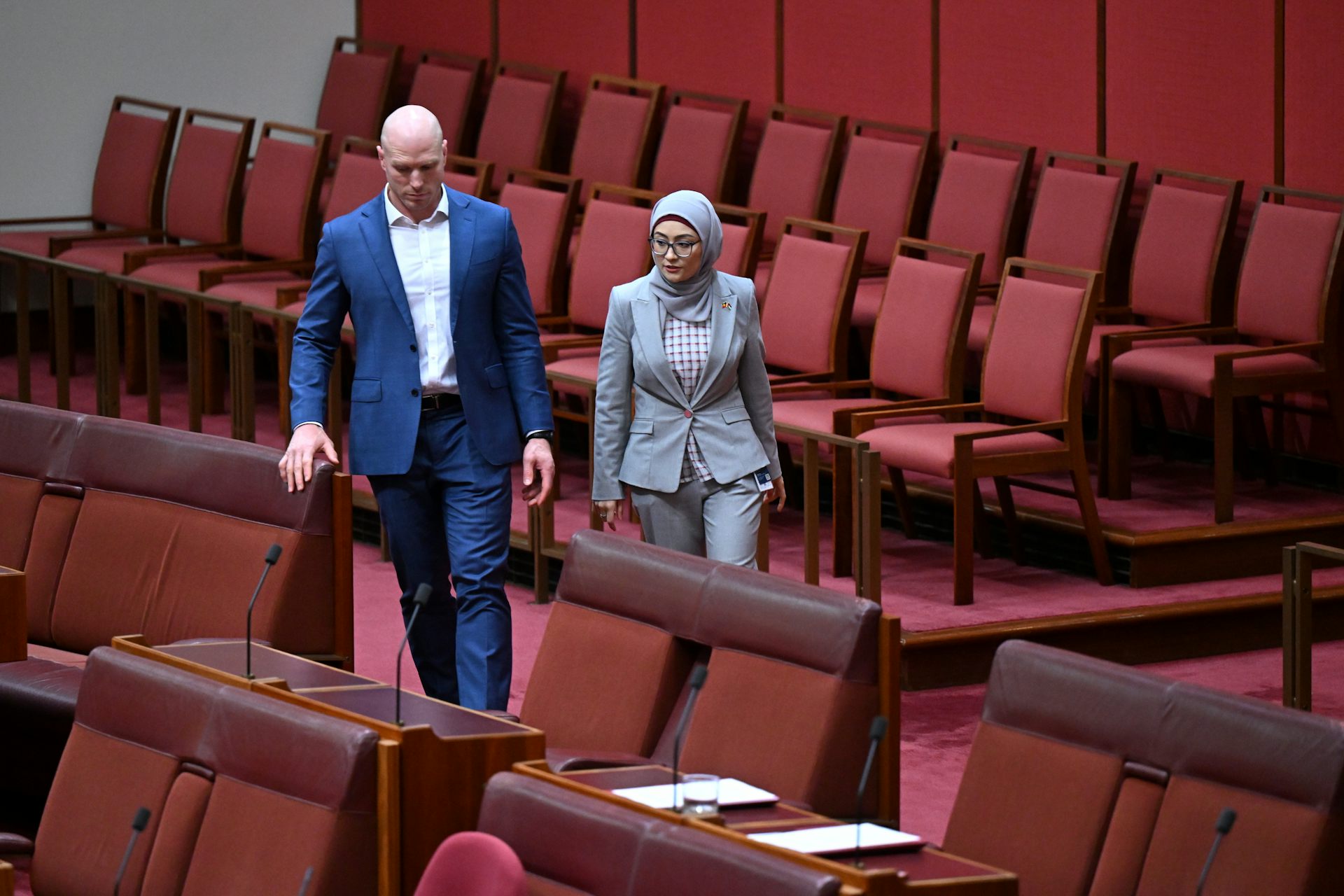
Months before Senator Fatima Payman's dramatic defection from the Labor Party, a personal battle was unfolding. Newly married to Jacob Stokes, a dedicated Labor advisor, Payman faced intense pressure to sway her party's stance on the Israel-Gaza conflict. As an Afghan-born Muslim, she was torn between advocating for Palestinian recognition and adhering to Labor’s traditional policies. Her husband, initially advising her to work from within the party, became increasingly distressed by the internal and external conflicts impacting their lives.
Stokes, witnessing the severe impact on Payman’s health and their social standing, eventually supported her decision to publicly denounce Israel's actions in Gaza. This led to Payman crossing the floor to vote with the Greens on recognizing Palestine, a move that marked a dramatic rift with her party. The consequences were swift: Payman faced reprimand from Prime Minister Anthony Albanese, was suspended from the caucus, and eventually expelled from Labor. Stokes resigned from his Labor position, though he remains a party member.
Payman’s decision was met with mixed reactions. Critics questioned whether her actions were driven by political naivety or a strategic agenda. Her consultation with political strategist Glenn Druery, known for guiding minor parties, raised eyebrows, and Druery is now her chief-of-staff. Payman’s future remains uncertain as she contemplates forming her own party while holding her Senate seat.
Payman’s departure from Labor underscores a broader debate about party loyalty versus individual conviction. She argues that Labor's rigid caucus solidarity stifles genuine diversity and dissent, an opinion contested by some within the party. As an independent senator, Payman continues to champion the causes she believes in, including the recognition of Palestinian statehood, even as she navigates the challenges of her new political reality.
Payman’s journey highlights the tensions between personal beliefs and party politics, revealing the high stakes for those who challenge established norms within political frameworks.


0 Comments